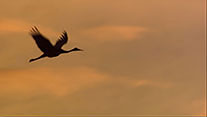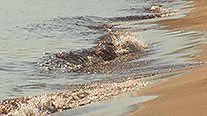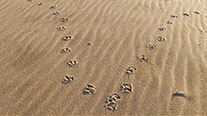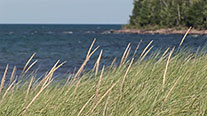From Billions to None Make a Difference |
VIEW Our Film's Wall of Gratitude, listING those who have Made contributions |
|
Yes, the story of the passenger pigeon is fascinating, strange and pretty sad. You might be thinking, “Are you trying to make me feel guilty about it?” No, but we wanted to get your attention. We can all learn something from what our ancestors did. We have indeed improved our water and our air since the days when a river caught on fire in Cleveland. But there is still a lot more we can do as a society. And it starts with you. Here is a checklist with links to help you find ways to change our world for the better. Make a difference. And share this page.
1. Help Keep Our Air and Water Clean Let’s face it. We’re surrounded by chemicals. If we can cut down on chemicals that we use everyday, it will help our environment – and our families. This family-owned company sells “sustainable” stuff at this website, but you don't have to buy anything. The site is chock-full of great information about living more sustainably. Try not to fertilize your lawn, but if you have to, do it the right way. This site gives great instructions on proper fertilizing. An intriguing site that let’s you check on your community’s environmental health by entering your zip code. (Okay, it can be a bit depressing). This Canadian site has an incredibly detailed list of products, toxic and less so, with suggestions on how to live a less toxic lifestyle.
2. Save Energy and Save Water Energy isn’t cheap, and creating a lot of it isn’t very clean (yet). So let’s try to use less of it. Water is a resource that is becoming more and more precious around the world. There are simple things we can do so less goes down the drain. A comprehensive guide on how to save money and energy at home. This is an excellent site with practical tips on using water, more wisely. A whole lot of good information about living with H2O. A nice page with ideas on how kids can help conserve water.
3. Reduce, Reuse, Recycle You might be tired of this phrase, but think about how much we’ve kept out of landfills in the past 20 years by recycling. If you have a recycling program in your community, take part in it. Use reusable grocery bags and carry water in a safe BPA-free reusable bottle, instead of buying bottled water. At your kid’s school, help organize like-minded teachers to organize a “Green Team” of students to recycle all kinds of stuff. Check out this amazing site where you can recycle almost anything and the school can make MONEY! Compost in your backyard. It’s not hard! We need to keep organic materials out of landfill. Methane from landfills is 72 times more potent than CO2 over a 20-year period. Make a difference and create great soil for your garden, or just save money on garbage! It adds up! A fun website for young people - about composting.
4. Protect Wildlife and Open Space Join a conservation-related organization you believe in, and if you live near a local group, get involved. Here a just a very few. There are a lot. The approach of Defenders of Wildlife is direct and straightforward - They protect and restore imperiled species throughout North America by transforming policies and institutions and promoting innovative solutions – and this approach makes a lasting difference for wildlife and its habitat. The Nature Conservancy is helping to conserve lands and waters on which all life depends. It’s as simple as that. Greenpeace is the leading independent campaigning organization that uses peaceful protest and creative communication to expose global environmental problems and to promote solutions that are essential to a green and peaceful future. Keep informed about conservation issues with this site, which features a customized search and news feed of reviewed, authoritative content.
5. Learn More About the Oceans and Sustainable Seafood We eat a lot of seafood around the world. And some of it isn’t doing so well. Get the 411 on the creatures in the sea by checking out these great websites. When you go out to eat and you order seafood, you might be choosing a threatened species. Know what you’re eating by downloading a seafood guide. Fishwatch provides easy-to-understand science-based facts to help consumers make smart sustainable seafood choices. Marinebio is maintained by volunteer marine biologists, students, professors, and conservation advocates around the world. They work together to share the wonders of the ocean realm while also promoting science education and inspiring awareness and action in marine conservation research, and a sea ethic. Check out the great and interesting work that our friend Professor Boris Worm is doing studying ocean ecosystems.
6. Contact Your Local Elected Representatives The Endangered Species Act is under attack by special interest groups. Let your Reps know this. Also add your support to the expansion of marine reserves to protect valuable marine life, and threatened marine species and habitats. Tell Congress to protect wildlife
7. Something Cool We just had to throw this in here. We used GoPro cameras to film our aerials with remote control quadcopters. These cool cameras give us a new way to see and appreciate our natural world. |
| SHARE— | |||||
| HOME | ABOUT THIS FILM | SPECIES THREATENED | SPECIES REVIVED? | MAKE A DIFFERENCE | THE FILMMAKING TEAM | BUY THE DVD | SCREENINGS | PROJECT PASSENGER PIGEON | SITE COMMENTS | | |||||
 |
 |
 |
 |